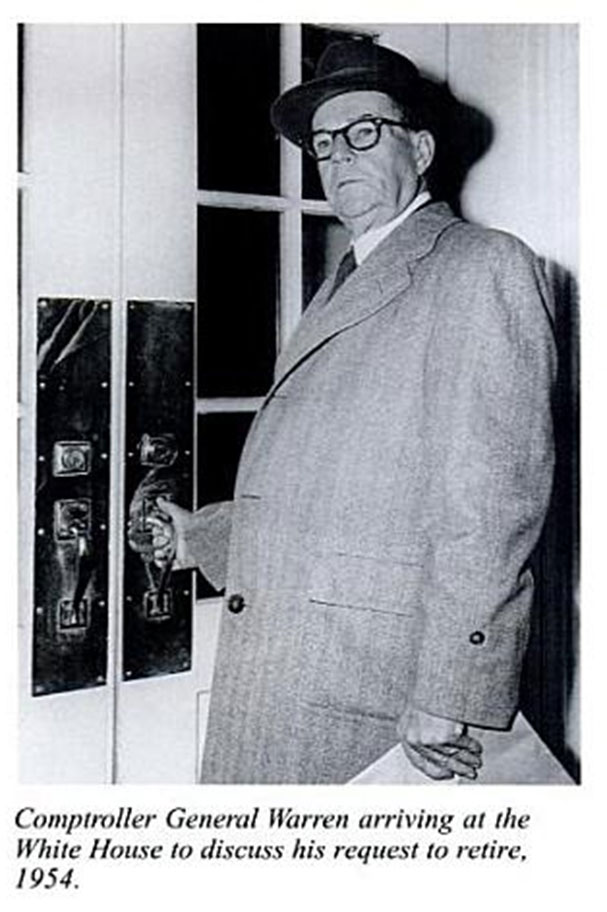Our 3rd Comptroller General, Lindsay C. Warren
I get up every morning at 6:30am, eat no lunch, never the leave the building unless called on official business and get home late…The work of the General Accounting Office has increased over 100% in the last two years, and we think we are playing a vital part in the war effortHe also planned and supervised GAO’s transformation from a voucher-checking agency to one that issued substantive, comprehensive audit reports, like the ones you’re familiar with today. But perhaps more important than the changes to the type and amount of work done, was how Warren expanded and improved the agency’s relationship with Congress. He did this in part because of his experience in the House. He also saw this as a way to protect GAO from executive branch efforts to change the agency’s role and function. Ultimately, Warren cemented GAO’s status as a legislative agency and fought executive proposals to change the agency’s work and organization. “Best Watchdog in Show” Like his predecessor
 , Warren retired from his position early due to health problems. Unlike his predecessor, Warren made it almost to the end of the 15-year term for comptrollers general. After nearly 13 and a half years at GAO, he left his post in the spring of 1954.
Following his retirement, the Baltimore Evening Sun observed that Warren was much less cantankerous than GAO’s first comptroller general, John R. McCarl, and brought an “old-fashioned conception of honesty and a rugged capacity to stand up to pressure from others without being offensive.”
Many believe that under his administration, GAO won much wider esteem, so much so that the Washington Star wrote that Warren rates “a blue ribbon: Best watchdog in show.”
, Warren retired from his position early due to health problems. Unlike his predecessor, Warren made it almost to the end of the 15-year term for comptrollers general. After nearly 13 and a half years at GAO, he left his post in the spring of 1954.
Following his retirement, the Baltimore Evening Sun observed that Warren was much less cantankerous than GAO’s first comptroller general, John R. McCarl, and brought an “old-fashioned conception of honesty and a rugged capacity to stand up to pressure from others without being offensive.”
Many believe that under his administration, GAO won much wider esteem, so much so that the Washington Star wrote that Warren rates “a blue ribbon: Best watchdog in show.”
- Questions on the content of this post? Contact Chuck Young at youngc1@gao.gov.
- Comments on GAO’s WatchBlog? Contact blog@gao.gov.

GAO's mission is to provide Congress with fact-based, nonpartisan information that can help improve federal government performance and ensure accountability for the benefit of the American people. GAO launched its WatchBlog in January, 2014, as part of its continuing effort to reach its audiences—Congress and the American people—where they are currently looking for information.
The blog format allows GAO to provide a little more context about its work than it can offer on its other social media platforms. Posts will tie GAO work to current events and the news; show how GAO’s work is affecting agencies or legislation; highlight reports, testimonies, and issue areas where GAO does work; and provide information about GAO itself, among other things.
Please send any feedback on GAO's WatchBlog to blog@gao.gov.
